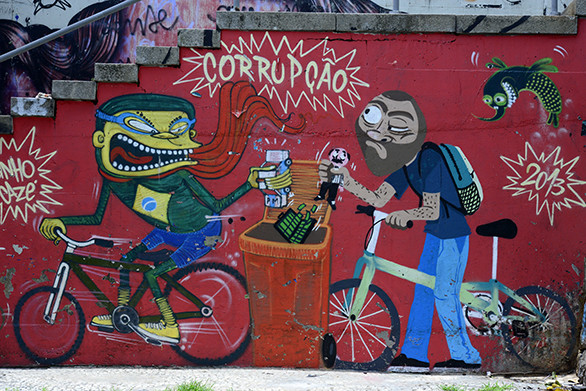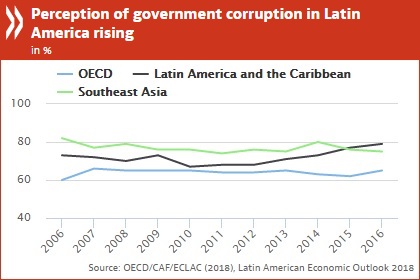Corruption on show

One of the most popular Netflix series in Brazil right now is The Mechanism. Loosely based on real events, the show is about an ongoing investigation of a corruption scheme involving high-ranking Brazilian politicians and companies. No wonder it’s so successful: 79% of the population in Latin American and Caribbean countries think their government is corrupt.
Brazil has had its scandals, but as the latest Latin American Economic Outlook 2018 underlines, the country has made advancements over the last decade to promote transparency and fight corruption, with laws against conflict of interest and money laundering, for instance, and such proactive open-government initiatives as a “transparency portal” to help citizens monitor how their money is being spent.
Still, public perceptions matter, not least for confidence. Indeed, in many countries around the world, state institutions have allowed specific groups to shape policy decisions in their favour, too often using corrupt means. This has eroded the democratic process and increased inequalities. And not only has this damaged people’s trust in government but it has also undermined the rule of law, a fundament of good governance and inclusive growth. This is a widespread problem in Latin America, as the report shows.
Perception of government corruption has not only stayed above the OECD average over the past 10 years, but surpassed that of southeast Asia in 2015. In 2016, Latin Americans’ perception of government corruption was 14 percentage points higher than the OECD average of 65% and 4 percentage points higher than southeast Asia’s 75%.

Graph from Corruption on show
OECD/CAF/ECLAC (2018), Latin American Economic Outlook 2018: Rethinking Institutions for Development, OECD Publishing, Paris
If Latin America is to make any headway against corruption, authorities need to enforce laws curtailing bribery and illegal political lobbying and financing. Stories of corruption can still excite binge-watchers–just let them be a work of fiction rather than real life.
OECD/CAF/ECLAC (2018), Latin American Economic Outlook 2018: Rethinking Institutions for Development, OECD Publishing, Paris
Note: This article was updated on 19 April 2018.
©OECD Observer April 2018
